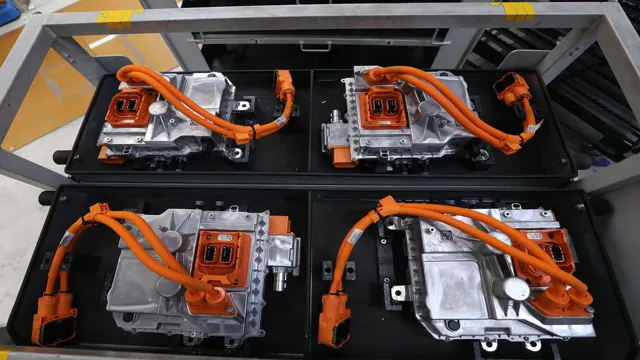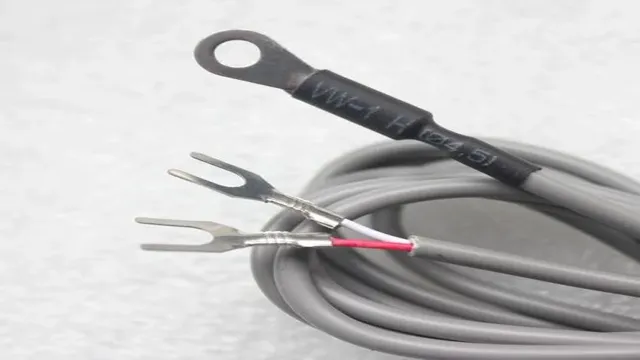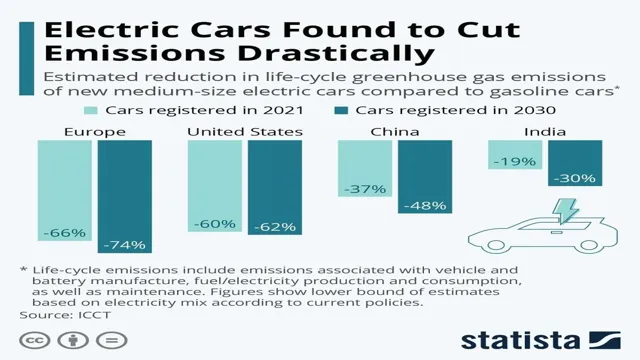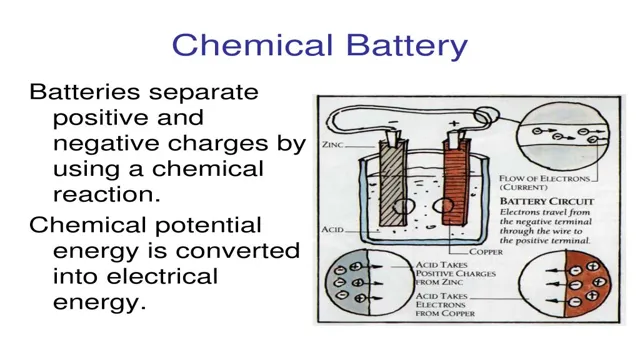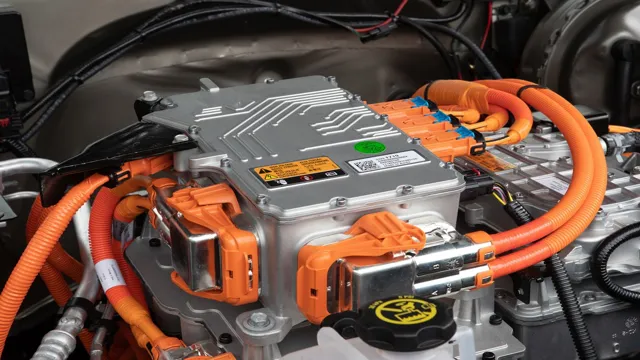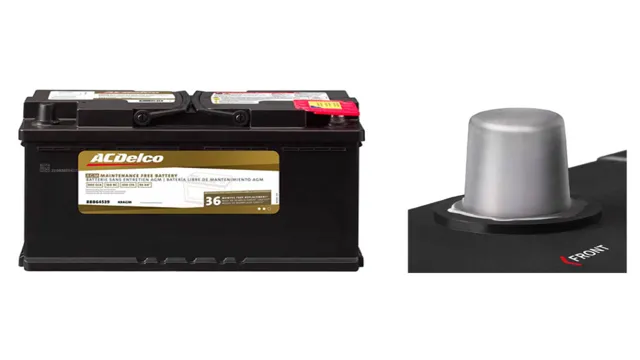Revolutionizing Home Energy: How Electric Car Batteries Are Now Powering Houses
Imagine if your electric car battery could not only power your vehicle but also your home. It may sound like something out of a sci-fi movie, but it’s actually possible with the right technology. With the increasing popularity of electric cars, the concept of using the vehicle battery to provide electricity to homes during peak demand times has become a reality.
It’s a win-win situation; not only can you reduce your carbon footprint, but you can also save money on your energy bills. In this blog post, we’ll explore how this technology works, the benefits it offers, and what the future holds for powering your home with an electric car battery. So, buckle up and let’s dive in!
Benefits of Using an EV Battery for Your Home
Electric car batteries are becoming an increasingly popular option for powering homes thanks to their numerous benefits. For starters, using an EV battery for your home is a more ecological way to generate electricity as it is a clean and renewable source. This means, day or night, you can power your home without worrying about pollution or rising electricity costs.
Additionally, using an EV battery for your home can provide you with backup energy during power outages, ensuring you always have electricity when you need it. The battery can store excess energy during low usage periods, like at night or on weekends, and release it during peak usage periods. Some electric cars even have a feature called vehicle-to-grid technology, which allows you to sell excess energy back to the grid.
As a result, using an EV battery to power your home is not only environmentally friendly, but it can also save you money in the long run. So, if you are thinking about ways to reduce your carbon footprint while saving money, installing an EV battery in your home might be the perfect solution for you.
Lower Electricity Bills
Lower electricity bills can be achieved by utilizing an EV battery for your home. By using the battery during off-peak hours when energy rates are lower, you can store energy to use during peak hours when rates are higher. This strategy is known as load shifting and is one of the biggest benefits of using an EV battery for your home.
Not only will this save you money on your electric bill, but it will also help you reduce your overall carbon footprint on the environment. Additionally, you can even sell excess power back to the grid during times of high demand, further increasing your savings. By integrating an EV battery into your home, you can have peace of mind knowing that you are being more energy-efficient and cost-effective.
So, why not upgrade your home and start saving money today?
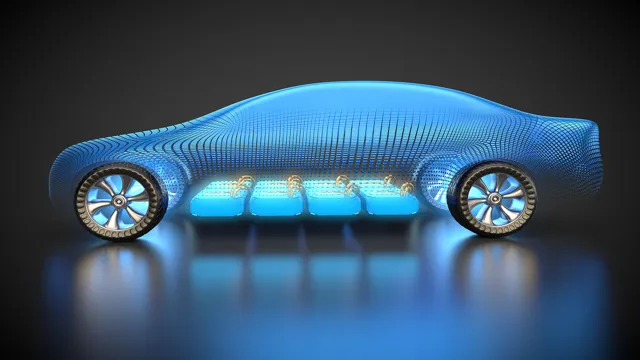
Reducing Dependence on the Grid
If you own an EV, using its battery to power your home can provide a multitude of benefits. Not only can you save money on electricity bills by reducing your dependence on the grid, but it can also help the environment by using renewable energy sources. By utilizing your EV battery to power your home, you can ensure that you always have backup power in case of outages or emergencies.
Additionally, you can take advantage of time-of-use rates and charge your EV during off-peak hours when electricity is cheaper. This can also help to stabilize the grid by reducing peak demand during high consumption hours. By considering using your EV battery as a power source for your home, you not only save money but also promote sustainability and stability in your community.
It’s a win-win situation that benefits both you and the environment.
Choosing the Right Electric Car Battery
If you’re looking to power your house with an electric car battery, it’s important to choose the right one for your specific needs. Firstly, consider the size of your home and the amount of energy you typically use. A larger battery will obviously provide more power, but it may not be necessary if you’re not a heavy user.
Secondly, consider the type of battery you want. Lithium-ion batteries are popular for electric cars, but there are also other options like nickel-metal hydride or lead-acid batteries. Each type has its own strengths and weaknesses, so it’s important to do your research and see which one will be best for your home.
Finally, think about the price and lifespan of the battery. While it may be tempting to go for a cheaper option, a more expensive battery with a longer lifespan may ultimately save you money in the long run. Don’t be afraid to ask experts in the field for advice and guidance.
With the right battery, you’ll be able to power your home efficiently and sustainably.
Capacity and Voltage Requirements
When it comes to choosing the right electric car battery, one of the most important factors to consider is the capacity and voltage requirements. Capacity refers to the amount of energy that the battery can store, while voltage relates to the electrical pressure at which the battery can deliver this energy. Essentially, the higher the capacity and voltage, the longer the car will be able to drive on a single charge.
However, it’s important to keep in mind that higher capacity and voltage batteries can also be heavier and more expensive, so it’s all about finding the right balance that meets your needs. It’s also worth noting that not all electric cars require the same battery specifications, so make sure to do your research and consult with a professional before making any decisions. With the right electric car battery, you can enjoy a smooth and efficient ride while doing your part to help the environment.
Compatibility with Your Home Setup
When it comes to choosing the right electric car battery, compatibility with your home setup is a crucial factor to consider. You want to make sure that the battery is compatible with your home’s electrical system, so you don’t have to worry about any electrical issues or malfunctions. One of the things you can do is to consult with an electrician to ensure that your home’s electrical system can handle the charging requirements of the electric car battery you are considering.
You should also consider the charging options available to you at home, such as level 1 or level 2 charging, and choose a battery that can be charged using your preferred method. Ultimately, choosing the right electric car battery that is compatible with your home setup will significantly enhance your driving experience and make sure you can easily and safely charge your electric vehicle at home.
Cost and Longevity Considerations
When considering an electric car purchase, one of the most important factors to consider is the battery – both in terms of cost and longevity. Lithium-ion batteries are commonly used in electric cars, and while they can be expensive to replace, they have a significantly longer lifespan than older battery technologies. It’s important to consider not just the initial cost of the battery, but also how long it will last and how easy it is to replace when necessary.
Choosing the right electric car battery is crucial to ensuring that your vehicle remains reliable and cost-effective over the long term.
Installation and Maintenance
Electric cars are becoming increasingly popular and people are finding innovative ways to harness their power. One way to do so is by using the electric car battery to power the house. This can be done through a process known as a Vehicle-to-Grid (V2G) system.
The V2G system allows electric cars to provide electricity to the grid when needed and can be used to power homes when there is a power outage or when energy prices are high. To install such a system, one must have a compatible electric car and a V2G charger. The charger will connect the car battery to the house and regulate the flow of electricity.
The maintenance of the system is relatively easy as one needs to keep the car battery charged and ensure that the charger is working properly. It is worth noting that using an electric car battery to power the house is not only cost-effective but also eco-friendly as it reduces the need for fossil fuels to generate electricity.
Working with a Professional Installer
Installation and maintenance of any home improvement project should be done by a professional contractor who knows exactly what they are doing. In the case of flooring, it is important to work with a flooring installer who has experience in the specific type of flooring you have chosen. That way, you can be sure that the installation will be done right the first time.
Professional installers have the tools, expertise, and knowledge to ensure that your floors are installed correctly and remain in good condition for years to come. They can also provide valuable advice on how to maintain your floors, including what products to use and what cleaning methods to avoid. And in the event that something goes wrong with your flooring, a professional installer can quickly and efficiently make any necessary repairs to keep your floors looking great.
So go ahead and invest in the services of a professional installer – your floors will thank you for it!
Regular Maintenance and Upkeep Tips
When it comes to keeping your home in top condition, regular maintenance and upkeep are crucial. But, it’s not just a matter of fixing things when they break. Installation and maintenance play an important role in keeping your home functioning efficiently and effectively.
From checking your HVAC system to ensuring your plumbing is working correctly, there are many things that homeowners can do to maintain their homes. One of the best ways to maintain your home is to set up a regular maintenance schedule. That way, you can catch problems before they turn into bigger issues and address them before they become costly repairs.
By taking care of your home, you not only increase its value but also create a safer and more comfortable living environment for yourself and your family. So, don’t overlook the importance of regular maintenance and upkeep when it comes to your home.
Future of Electric Car Battery Home Power
The future of electric car battery home power is quickly approaching, and it has the potential to revolutionize the way we use energy in our homes. With the increasing demand for renewable energy sources, electric car batteries have emerged as a promising contender in the race towards sustainability. These batteries are designed to store large amounts of energy, which can be used to power houses during peak hours.
As a result, homeowners can save money on their energy bills and reduce their carbon footprint. The process of integrating an electric car battery into a home’s electrical system is simple, and it can be done by a qualified electrician. Once installed, the battery can be charged using renewable sources, such as solar panels, further reducing energy costs.
Overall, the concept of electric car battery home power is exciting, and it has the potential to spark a new era of sustainable energy use.
Conclusion
In summary, the idea of using an electric car battery to power your home is not just an eco-friendly solution, but also a practical and cost-efficient one. With this innovative approach, you can harness the power of your electric vehicle not just for transportation, but also for your daily energy needs. So, why let your car’s battery sit idle when it could be charging your household instead? With a little creativity, you can turn your garage into a power station and join the movement toward a greener future.
Who said you can’t have your cake and eat it too?”
FAQs
How does an electric car battery power a house?
An electric car battery can power a house through a process called vehicle-to-home (V2H) technology. It involves using a special inverter to convert the DC current from the car battery into AC current, which can then be used to power household appliances.
How long can an electric car battery power a house?
The duration of time that an electric car battery can power a house depends on several factors, including the size of the battery, the amount of energy the household appliances require, and the efficiency of the vehicle-to-home conversion process.
Can an electric car battery be used to store excess solar power for later use?
Yes, an electric car battery can be used to store excess solar power generated by rooftop solar panels for later use. This is known as vehicle-to-grid (V2G) technology and it allows homeowners to use the stored energy during times when there is no sunlight available.
Is it cost-effective to use an electric car battery to power a house?
The cost-effectiveness of using an electric car battery to power a house depends on several factors, including the cost of electricity in the area, the size of the battery, and how often it will be used. In some cases, it may be more cost-effective to install a dedicated home battery storage system instead.
